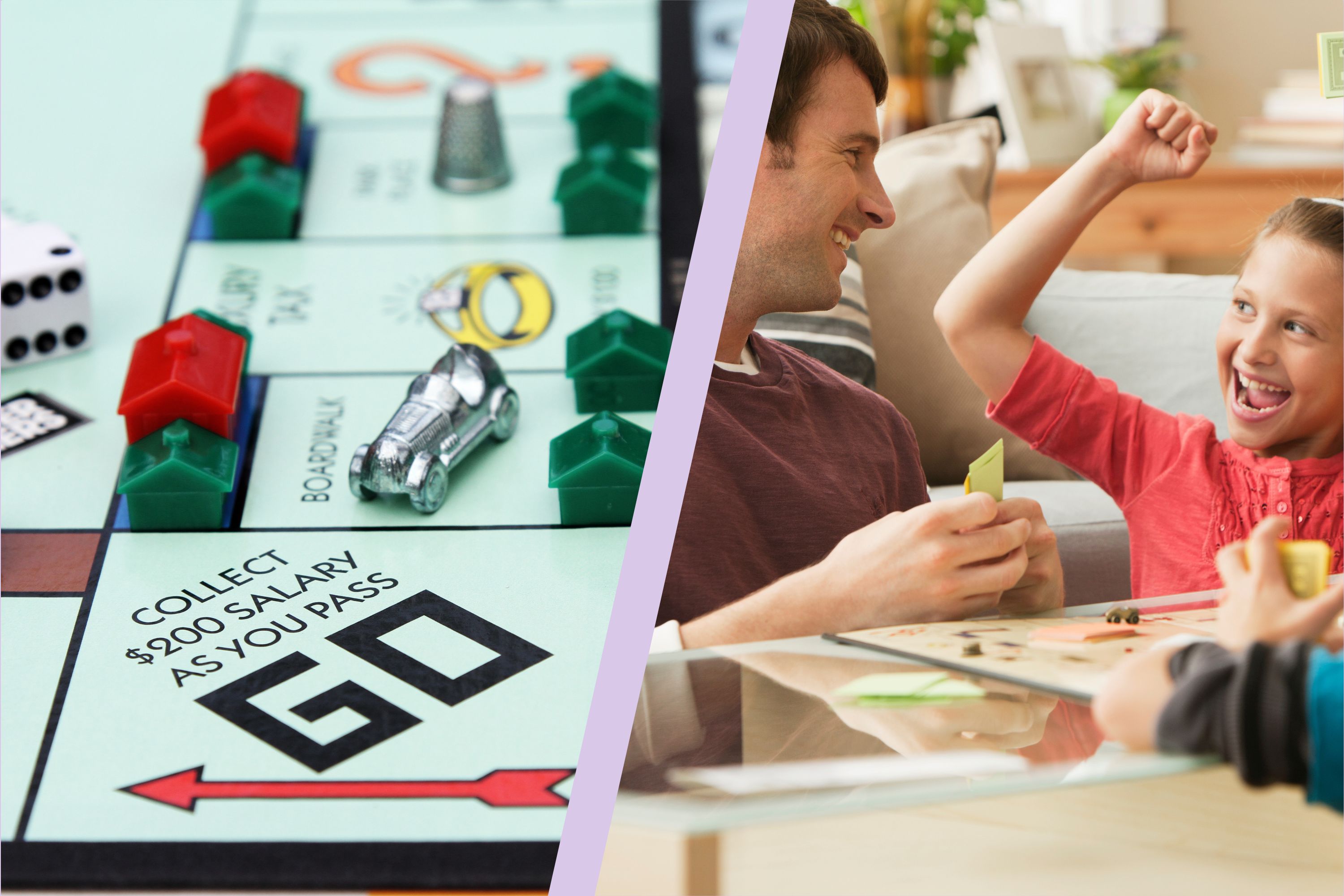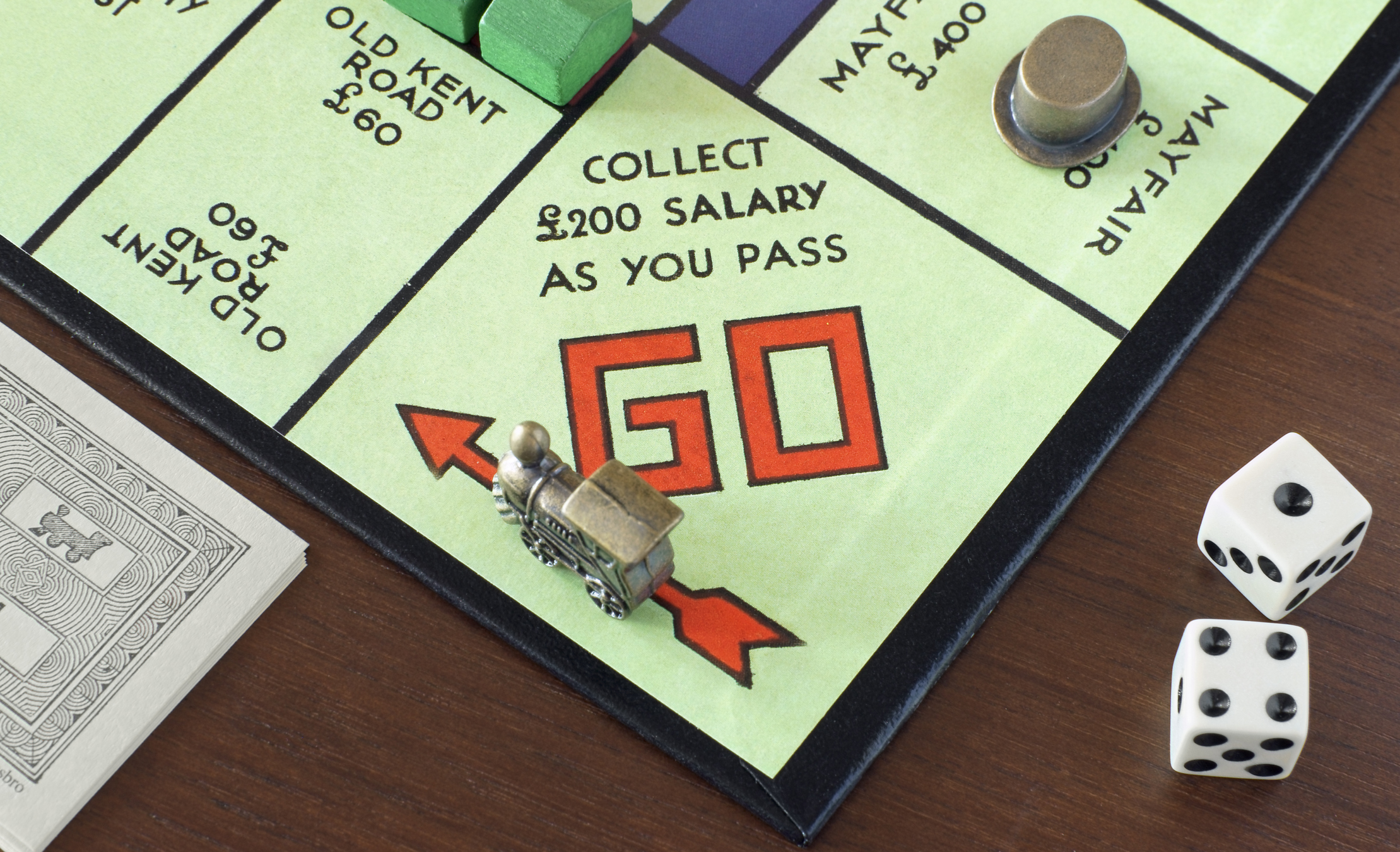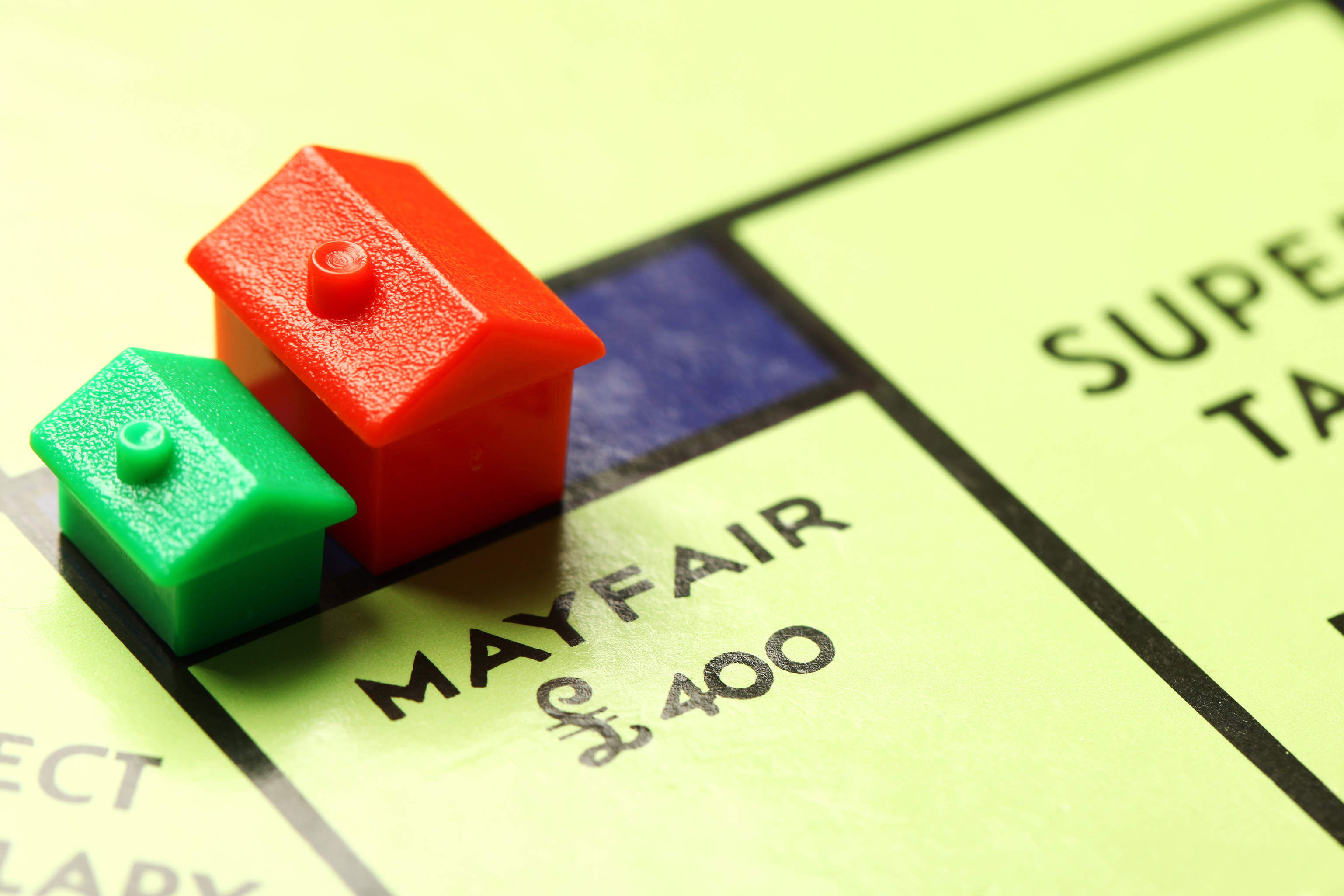
Monopoly is one of the world's favourite board games. However, it often descends into arguments and tantrums when players disagree over the correct way to play the timeless classic.
It might be one of the best Christmas board games you've played with the family and it's not surprising that Monopoly Sore Losers was once named one of the best kids' board games for eight-year-olds. But if you cannot bear to lose at anything then you'll want to make sure you are clued up when it comes to busting these made-up Monopoly rules that your opponents might try to use.
Monopoly is a game that has been going on for years - ever since the first board game was made back in 1935 - it's loved by all generations. But as the winner-take-all board game has evolved, it's available in 37 languages and has more than 200 licensed and localized editions for 103 countries across the world, according to the Library of Congress research guide.
There's a Cheaters Monopoly for those who can't play fair, Frozen Monopoly for kids who are fans of Disney, and Fortnight Monopoly might go down well with teenagers. Did you know that by 2010 there had been more than 250 million sets of the game sold since its invention, with it being played by over half a billion people, making it possibly the most popular board game in the world?
Amber Crook, editorial chief and board games expert at GameRules.com, has debunked ten commonly made-up Monopoly rules, to help resolve any potential quarrels ahead of a family board game showdown. But how many come as a surprise to you?
Follow, bend or break the rules to win, but just don't get caught. Cheat cards will tell players which cheats to attempt and it comes with plastic handcuff to chain cheating players to the Jail space.
All the favourite characters from Disney Frozen 2 feature in this board game which is suitable for ages eight and upwards. One Frozen-themed game board, Six character pieces, 22x title deed cards, 16 royal decree cards and 16x family chest cards complete the set up.
Football fans can now get a piece of the action on the Monopoly board, with football themed counters to move around the board, from A solid silver football to football boots, whistle, drinks cup, goal, trophy burger and cap to complete the line up.
Move around the game board using one of the exclusive tokens iconic to the gang: A handbag, a dinosaur, a sweater vest, a pizza, a chef's hat, or an acoustic guitar. That's not all, the game board spaces feature scenes and themes Friends fans will recognise including Relaxi Taxi, All the Candy, Ross' Teeth, and Holiday Armadillo.
Perfect for any Chocolate loving fan, choose from tokens including the golden egg, the everlasting gobstopper and the fizzy lifting drink, and tour recognisable spaces like the chocolate river and the waterfall. Suitable for ages eight and upwards.
10 commonly made-up Monopoly rules
1. You receive M400 for landing on GO
Most Monopoly fans will be familiar with the concept that if you pass GO you collect £200/$200, after all, it's written as a reminder on the board. But that hasn't stopped some people from bending the rules a little - so that if a person lands on the actual GO spot they get double that value. And Amber warns players not to be fooled by this. She explained, “A common house rule is that if you land directly on GO, you receive M400 from the bank rather than the standard M200. While this may have helped you out of sticky situations in previous games, it is not actually a rule and only serves to make the game longer than it needs to be. If you land on GO, you should only receive M200 from the bank, in the same way as if you were passing GO."
And she pointed out another way players often try to bend the rules, she added, “Additionally, if you land on a property just before GO, you are not allowed to prematurely collect this M200 from the bank, even if you are short on cash.”
If in doubt, read the board, and you will see it advises "Collect £200 salary as you pass GO" and not before.

2. You receive money if you land on Free Parking
In real life, free parking doesn't happen very often, and in Monopoly it's a breath of fresh air as this part of the board acts as a bit of a breather for players who are trying not to suffer any financial losses or penalties. But some players have come to believe that anyone who lands on the spot can receive money. But this is not the case, as Amber explains, “Many think that any in-game fines and taxes are paid to the Free Parking square, for players to collect if they roll and land on it. While it may add an exciting element of luck to the game, this is unfortunately not an official rule.
“Instead, any in-game fines should be paid directly to the bank, and the Free Parking square should serve only as a ‘resting place’ if a player lands on it, according to the rule book.”
And if in doubt, think back to the last time someone paid you for parking somewhere for free. Chances are it's never happened.
3. You don’t have to buy or auction a property if you land on it
When players are moving around the board and they happen to land on an unowned street or utility some have come to think that they don't have to buy or auction the property but this is false. If they don't wish to buy it they cannot simply skip past it. Amber advises, “When a player lands on an unowned property or utility, they have first dibs on purchasing it for the listed price. If they choose not to buy it, the property is immediately put up for auction by the banker. Every player can then bid on it, including the player who originally passed on buying it.
“Any players can set the starting bid and the property is then purchased by the subsequent highest bidder.”
4. You can’t collect rent while in jail
Most Monoploy fans might agree that going to jail without passing GO and collecting £200 used to be the worst thing ever - especially if your opponent happens to lap the board several times, raking in £200 for each passing their bank balance can quickly add up. But surprisingly a common myth is that those sent to jail are trapped and unable to make money by buying or selling properties until they're legitimately freed. But this isn't the case.
Amber shares, “It’s a common misconception that when a player is in jail, they can’t collect rent if another player lands on a property they own. Again, not true! You can collect rent, or buy and sell properties or houses, as you normally would while in jail."
But there's a catch, you still have to keep your eyes on the board if you want to be in with the chance of making some extra money as Amber warns, "Regardless of whether you are in jail or not, if you fail to notice a player has landed on your property, you cannot then ask them for rent once the next player has already rolled the dice.” What's that saying? - You snooze, you lose!
5. You get out of jail for free after three rolls
The only way to get out of jail without paying a penalty if you don't possess a 'Get out of Jail free' card, is to roll a double on the dice. But many still think that they can escape after three rolls of the dice. This is partly true but there are some restrictions - including paying a fine and making a limited move - that must be adhered to. Amber explains, "If you are in jail, you can roll a double during your turn to get out. Many players think that after three rolls you can automatically move your player piece out of jail for free, but this isn’t true.
“The rules actually state that on your third roll, you must still pay a M50 fine to the bank, before moving your piece out of jail according to the number shown on the die.”
6. You can unmortgage a property for the same price
Buying and selling is the aim of the game but while many Monopoly fans will have their own agenda, closer attention needs to be paid to what happens when a property is unmortgaged by a player. While any player is allowed to mortgage an unimproved property they own for the value on the back of the card, to give them some extra cash from the bank, if they wish to unmortgage it, they will have to pay more than the initial mortgage value.
Amber says, "If a player wishes to ‘unmortgage’ this property, they need to pay the bank this amount plus an additional 10% interest based on the mortgage value.
“For example, if a player mortgages a property for M100, they would need to pay the bank M110 to unmortgage it.”
7. You must wait until your turn to buy houses
Arguing over whose turn it is is a common grievance among players, but aside from asking everyone in the family member who isn't playing to settle the debate, this need not be as much of a worry. Contrary to popular belief, you don't have to wait until it's your turn to buy a house. Amber explains, “You don’t have to wait until your turn to build houses on your properties (plot of land). Once you have all the properties in a colour group, you can build houses and hotels at any point during your turn or between other players’ turns."
But there's a catch, “You can’t, however, build houses on one of your properties if a player has already landed on it” Amber adds. But seriously, who knew?! Being able to build houses on your land when it's not even your turn to roll a die is literally a gamechanger, and could prove the difference between being bankrupt or an outright winner [especially if you pop a property or hotel on before the player is about to approach your street] just the chance of them landing on it afterwards might have you laughing all the way to the bank - kerching!

8. You can build houses on just one property
There doesn't have to be a housing crisis for Monopoly players to get carried away with wanting to add the tiny 'green' houses or bigger red hotel blocks to their land. But while some might argue that you can build a house on just one property, the rule book says differently. “Once a player owns all the properties in a colour group, they can begin building houses on them. The rulebook states that players must build houses evenly across each of their properties in a colour group." Amber clarifies. "For example, you are not allowed to build a hotel on one green property, and only one house on the other two green properties."
And there's a little-known sticking point to anyone with a mortgage on their house. “If you have mortgaged one of your properties, you also cannot build houses on the other properties in that colour group, until you have unmortgaged said property" she added.
9. Properties go back to the bank if you go bankrupt
No one likes to lose but those who find themselves out of the game, don't simply have their assets taken back by the bank. It's actually more cutthroat than that. The player who causes them to go bankrupt actually acquires all of their property portfolio. But it's not all good news for the gloating player as they must make a payment, and it could end up being costly.
Amber says, “If a player lands on one of your properties and they cannot afford to pay you rent, despite selling their houses and mortgaging their properties, they go bankrupt and are out of the game. If you are the one to bankrupt them, you acquire all their mortgaged properties, rather than these properties going back to the bank. When you acquire another player’s mortgaged properties, you must immediately either pay the bank 10% interest on each mortgaged property or pay to unmortgage each property."
Let's hope that the player has enough in the bank to cover it and hasn't been too greedy, leaving themselves short of savings. The only time properties go back to the bank is if a player "becomes bankrupt due to not being able to pay a tax or fine. In this case, the banker can then auction off these seized properties to the other remaining players.” Amber adds.
10. The game ends when one player goes bankrupt
While Monopoly is notoriously known as a game that never ends, some players have been known to even call it a night and go to sleep with their money tucked under their pillow for safekeeping until play resumes in the morning. But the aim of the game is for players to keep going until only one player remains - and NOT before the first person goes bankrupt.
“When the game feels like it has gone on for too long, it is tempting to end the game as soon as the first person goes bankrupt. However, according to the rule book, the game only ends when one player is left and everyone else has gone bankrupt." But if you're stuck for time, all players should agree on whether they're going to stick to the rules or not from get GO.







